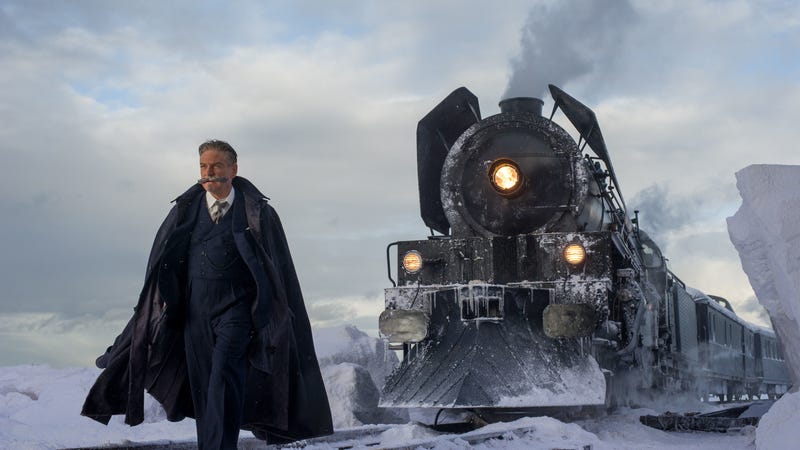 |
| Miguel enters the Land of the Dead in Coco. Image courtesy Disney. |
At stake in Coco is both life and eternal life. The life of the precocious but impetuous Miguel (voiced by Anthony Gonzalez) is the most trenchant threat the movie has to offer, given the fear of dying at a young age is about as close to a universal horror as it gets for Coco’s young target audience. More existentially horrifying is the death that comes after death, as the spirit Héctor (Gael García Bernal) describes to Miguel after watching the already dead dissolve away into nothing. All life effectively ends once the world has forgotten about you, the memory imprinted into others is the flickering candle that keeps the souls fresh in the Land of the Dead. Death is inevitable, but a second death caused by the world forgetting you, and knowing that is exactly how one is fading toward oblivion, is terrifying and inevitable. Coco attempts to cover the darkness of its subject matter with what is a gorgeous depiction of the Land of the Dead. What could be shown as a dark and morbid place is depicted instead as a lively city light brightly and festooned with garish lights and lots of light hues, showing how the denizens of the Land of the Dead haven’t lost their humanity.
And yet, this is still a movie about an impossible to know subject explained to children with little cognizance of what death actually means. Coco resides in a very dark place for a Pixar film, putting its child protagonist at risk of a premature entry into the Land of the Dead from the start of act two. The film gives its young character an easy out by requesting forgiveness from long-dead matriarch Mamá Imelda (Alanna Ubach), under the condition Miguel abandons his love for music and adopts his family's shoemaker life. Miguel actively resists his dead family's help and instead searches for guitar legend Ernesto de la Cruz (Benjamin Bratt) for absolution, preferring the possibility of death over the death of his passion. It's a headstrong and dangerous choice, albeit one the movie doesn't fault him for either. It's a Pixar tradition to have complicated moral lessons, never quite showing one side of an argument to be more right than the other. There are shades of correctness, areas in which compromise between the warring parties should take precedence because of their shared bond. A lesson is learned by all, but everyone learns their own lesson to reach the important middle ground. The problem, at least for Coco, is the plot machinations to get to those points is a little sloppy, even granted the relative lower bar set for animated movies (and the expository nature of musicals). The lessons are a little too easy to figure out for the characters, the journey toward self discovery a little too convenient. One of the major plot points is telegraphed in a manner that remains inexplicable, relying on a character making an incredibly dumb admission of guilt in a fictional format. The narrative can’t be this pointed to work as effectively as it could; being too blunt about the process lessens the effect of the lesson shared to the character, and to the audience as well.
It’s a frustrating problem, but forgivable for how wonderful the rest of the movie is. Coco is really, really easy to get lost to, the visuals complementing the music, which adds brightness to the morbid story. This movie is a reminder of what Pixar is capable of when it isn't chasing Cars money, providing joyous and heartfelt viewing experiences for children and adults. It's hard not to bob one's head along to the addicting songs and laugh at the gallows humor and enjoy Miguel’s family run by his Abuelita (Renee Victor). And it's especially hard not to sob uncontrollably in the third act when Miguel plays a heart-wrenching song to his great grandmother, the eponymous Coco. The build up to that moment is brilliant, the moment plays out gorgeously, and the movie earns every tear that will cascade from your eyes.
Review: Four and a half out of Five Stars
Click here to see the trailer.
Rating: PG
Run time: 109 minutes
Genre: Animation
Ask Away
Target audience: Families and Pixar junkies.
Target audience: Families and Pixar junkies.
Take the whole family?: Coco is appropriately morbid given the subject matter, but it's bright enough to not scare off kids much younger than 7.
Theater or Netflix?: Totally worth watching it in theaters with the kids, especially after a long day of Black Friday shopping.
How's the soundtrack?: Pretty great, actually. Inspired by the Mexican milieu and its themes of memory, the music oscillates between fun and cheerful to mournful and heartbreaking. They're catchy, but in a quality way that doesn't make replaying the music for two days straight feel regrettable.
Watch this as well?: Most of the Pixar library is some variation of good to excellent. This one fits alongside Inside Out and Up in the break your heart category.


